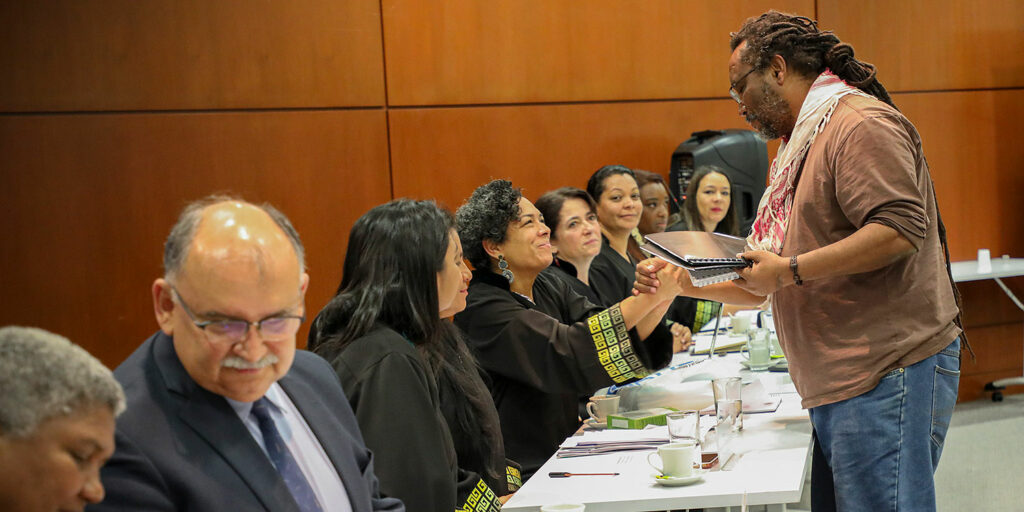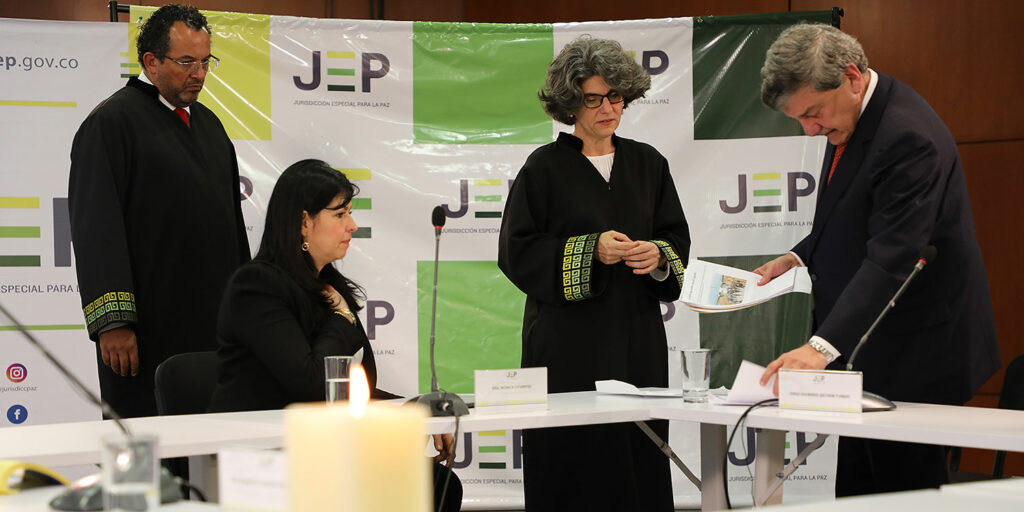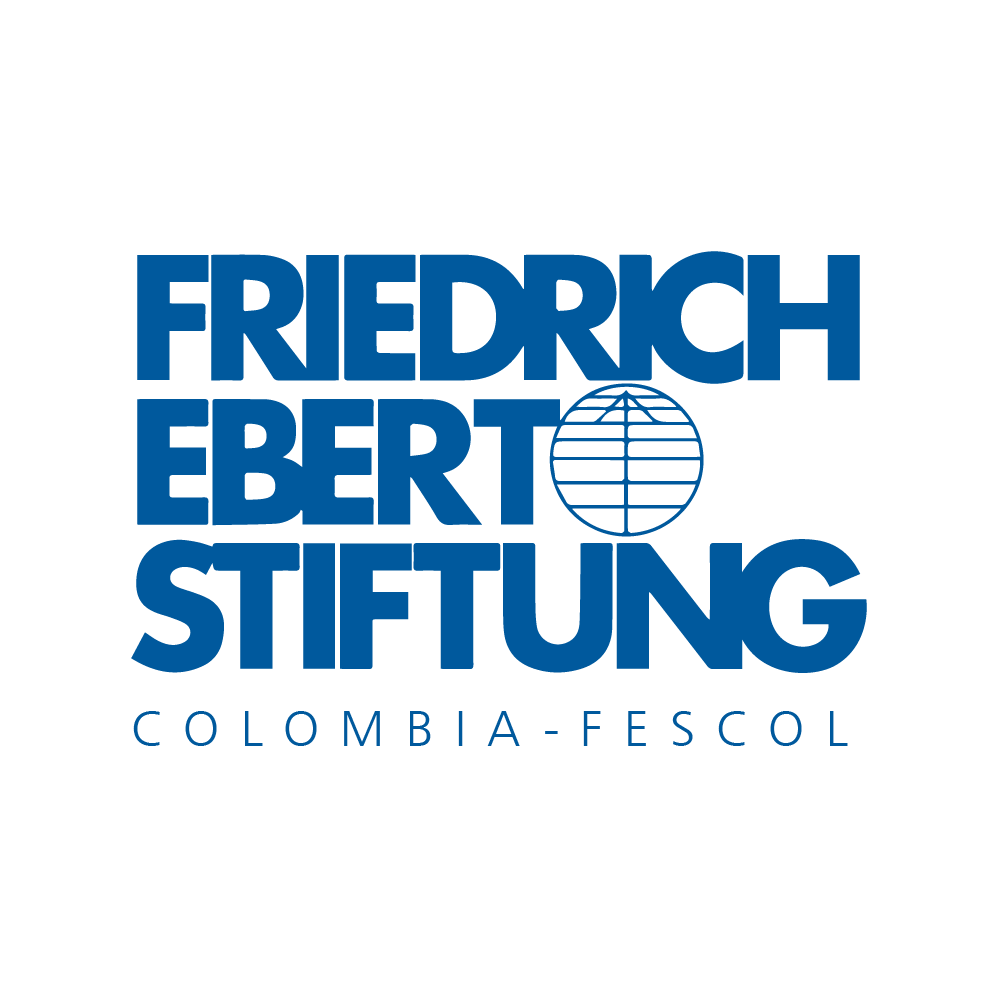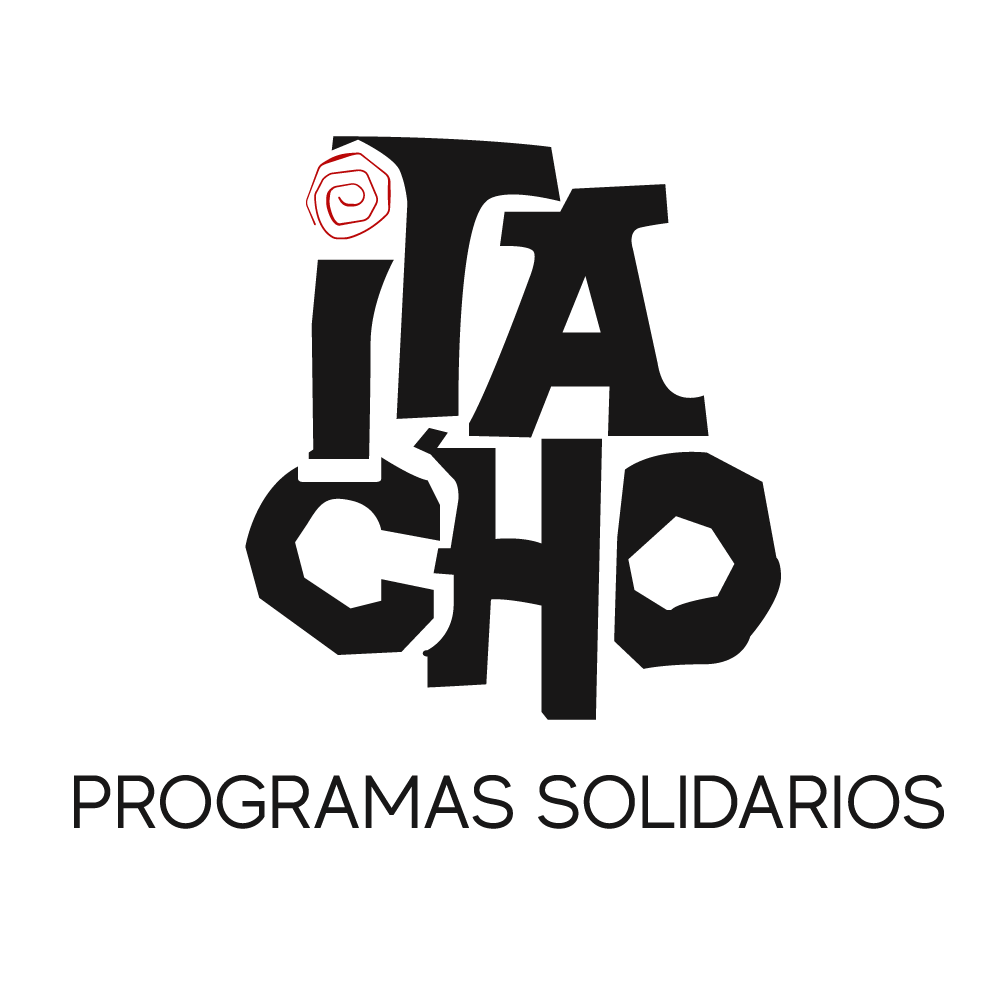“It is not about destroying or shattering the agreements, but it is about making modifications to them,” said Iván Duque Márquez, in January 2018, when he was still a candidate for the Presidency of Colombia and was outlining his critical positions against the Special Jurisdiction for Peace (JEP). After being elected, during his mandate and in different opportunities he has tried to trip it up with reforms and demands, but this entity works and shows progress.
At least this is what some sources consulted indicate, whom, beyond the figures and data, recognize that even with delays and in the midst of the harsh socio-political context in which Colombia lives, this transitional jurisdiction is advancing. Others, quite critical, argue that, in principle, the Peace Accord was illegitimate and, therefore, so is everything that derives from it.
The JEP is one of the components of the Truth, Justice, Reparation and Non-Repetition System (along with the Unit for the Search for Disappeared Persons and the Truth Clarification Commission), enshrined in the Final Agreement for the Termination of the Conflict and the Construction of a Stable and Lasting Peace agreed in Havana, Cuba, between the Colombian State and the extinct FARC guerrillas, and endorsed in Bogota on November 24, 2016.
Its essential purpose is to “satisfy the right of the victims to justice, offer truth to Colombian society, protect the rights of victims, contribute to the achievement of a stable and lasting peace and adopt decisions that grant full legal security to those who participated directly or indirectly in the internal armed conflict through the commission of the aforementioned conducts”.
This entity, created with Legislative Act 01 of April 2017, will operate for a maximum of 20 years and has under its responsibility to know and judge the conducts committed prior to December 1, 2016, “due to, on occasion or in direct or indirect relation to the armed conflict, by those who participated in it, especially with respect to conducts considered serious violations of International Humanitarian Law or serious violations of Human Rights”.
After five years of implementation of the Peace Agreement and four years since the entry into force of the JEP, its work oscillates between the support of victims’ organizations and international bodies, and the opposition of those who believe that it is a model of justice “tailor-made” for the former FARC. There is still a long way to go and intense debates to be heard.
Voices of support
Adriana Arboleda, spokesperson for the National Movement of Victims of State Crimes (MOVICE), highlights that the JEP has made significant decisions, such as the endorsement of precautionary measures for the protection of 17 places where bodies of victims of forced disappearance are presumed to be located. This decision has allowed it to articulate with the Unit for the Search of Persons Reported Missing (UBPD) in order to provide a more effective response to the families.
In one of its latest reports released by the Kroc Institute of the University of Notre Dame, overseer of the implementation of the Peace Accord, it highlights actions such as the accreditation of five people from the LGBT community in Case 05 (on the humanitarian situation in several municipalities of northern Cauca); the accreditation of the Communist Party as a victim in Case 06 (referring to the victimization of members of the Patriotic Union); the taking of actions to guarantee the participation of victims in the processes; and the launching of the protocol for the relationship with the Own Justice of black, afro-Colombian, raizal and palenqueras people and communities.
The latter is endorsed by Rosana Mejía, senior counselor of the Association of Community Councils of Northern Cauca (ACONC). The JEP, according to her, “has recognized the role of the self-government mechanisms and we have been taken into account, especially in Case 05, in which we are the community councils of northern Cauca and some from Valle. We cannot deny these things. Ethnic participation has been broad”.
On their behalf, in the third follow-up report of the Peace Agreement, published in August of this year, the Attorney General’s Office highlights the organizational development of the JEP, the processes being carried out in the Amnesty or Pardon and Definition of Legal Situation chambers, the progress in the seven macro-cases opened so far, the precautionary and protection measures, the participation of victims in the context of the pandemic, the gender focus at the institutional level and the articulation with the ordinary justice system.
The legal team of the Coalition Against the Involvement of Children and Young People in the Armed Conflict in Colombia (COALICO) considers that this transitional jurisdiction is "the best opportunity that the Colombian State has to combat the impunity that, historically, has characterized investigations into the illegal recruitment of children in the context of the armed conflict", and they say that they regard “with good eyes" the work already done, because it has issued judicial actions that in other conditions would be unimaginable and it helps to the construction of truth as reparation and as a guarantee of non-repetition.
The Technical Secretariat (TS) of the international verification component of the Final Agreement, formed by the Center for Research and Popular Education (Cinep) and the Conflict Analysis Resource Center (Cerac), highlights that the methodology used by the JEP is allowing, among other things, to demonstrate the interconnections between the macro-cases, regardless of time and place, and the patterns of violence, the responsibilities of different participants, the recognition of the stories and the participation of the victims. (See report)
This is exemplified by decisions taken in cases 01 (on hostage-taking and other serious deprivations of liberty committed by the FARC-EP) and 03 (referring to deaths illegitimately presented as casualties in combat by agents of the State).
In the first case, eight members of the former FARC secretariat were charged with crimes against humanity, including slavery, recently added, and the registration of 21,396 victims of deprivation of liberty; and in the second case, ten military and one civilian were charged with war crimes of homicide in protected individual, crimes against humanity of murder and forced disappearance, the recognition of at least 6,402 victims of extrajudicial executions and of a criminal policy and widespread systematic practice.
"We have been quite satisfied with the work that the JEP has done. We have had participation, which did not happen through the ordinary justice system. When they gave that figure of 6,402 documented cases, it was able to demonstrate that they were not isolated cases," says Jacqueline Castillo, representative of Mothers of False Positives of Soacha and Bogota (MAFAPO).
In addition, the TS registered the accreditation of five soldiers, in Case 05, as victims of antipersonnel mines, and the submission of 12,993 people to the jurisdiction (9,810 FARC-EP, 3,029 from the Public Forces, 142 State agents other than the Public Forces and 12 from social protest).
For Bernardita Pérez, professor at the Law School of the University of Antioquia and constitutional lawyer, all the efforts made by the JEP are important, especially those related to the macro-cases.
To reinforce her argument, this jurist compares the South African peace process, which took place in 1994, with that of Colombia, emphasizing some figures achieved so far and which she describes as "extraordinary" results: more than 50,000 judicial decisions adopted; 13,258 people who signed a commitment and submission act; 17,489 judicial decisions adopted in the Amnesty or Pardon Chamber; and 19,641 judicial decisions adopted in the Chamber for the Definition of Legal Situations.
Faced with these figures, Camila Moreno, director in Colombia of the International Center for Transitional Justice (ICTJ), affirms that what can be seen is a reflection of the great challenge that the jurisdiction faces in addressing the massiveness of the facts and the actors.
What is at stake," she says, "is the capacity of the Colombian state, through the JEP, to guarantee strategic prosecution, when we are talking about hundreds of perpetrators, thousands of victims, thousands of events that will never be clarified one by one; and this is very important to reiterate and to make it part of the pedagogy that the JEP must continue to do, (because) it is what will be prosecuted, not the individual events, because if that were the case, we would probably need, who knows, many hundreds years to achieve it".
Despite the political context difficulties and the complexity of creating an institution in Colombia under the Peace Treat, Moreno considers that the work of the JEP is positive, especially because there are already substantive decisions, such as indictments, and because there has been a good understanding of the process by the victims, the FARC participants and the low-ranking members of the military.
In the midst of the difficulties, the progress of the JEP has received ample gestures of support and legitimacy. One of the most important came recently from Karim Khan, prosecutor of the International Criminal Court, who suspended the preliminary examination on human rights violations that the court had been open on Colombia for 17 years after considering that the processes being carried out by the transitional justice system against former members of the FARC and the security forces are on the right track to guarantee justice for the victims of the armed conflict.
Not all that glitters is gold

"Restitution for the victims is at the heart of the General Agreement for the termination of the conflict and the construction of a stable and lasting peace", is the spirit of the Peace Agreement and, a fortiori, of the JEP.
But how do the victims of the former FARC feel? Have they been listened to? Have they been taken into account? Different civil society organizations have critical responses in this regard.
One of them is the Colombian Association of Retired Officers of the Military Forces (ACORE). Its president, retired Colonel John Marulanda, considers that the JEP, the Truth Commission and the UBPD are bodies "derived from an agreement that was rejected by a majority of Colombians in a broad, clear and democratic vote. Therefore, they lack legitimacy, even if they are legalized".
Like ACORE, the Colombian Federation of Victims of the FARC (FEVCOL), represented by Sebastián Velásquez, also believes that the Peace Accord and the JEP are illegitimate and questions several of its decisions, among them why and what for the inclusion of extrajudicial executions, the victimization of UP members and the limited territorial scope by limiting other cases to a few municipalities.
"As if the FARC had not been in all of Colombia," affirms Velásquez, and argues that the elements of truth, justice, reparation and non-repetition of the JEP and the Integral System are not being fulfilled.
Regarding the gender approach, Juliana Ospina, member of Corporación Sisma Mujer, assures that they continue to encounter the barrier of stereotypes and limiting beliefs: "That was the least serious", "this is not so serious", "let's put it over there", "let's put it here in the region", "let's put it here as something else".
Statements like these, she warns, do not allow progress to be made in the area of sexual violence. In addition, she doubts whether the JEP is recognizing the existence of these crimes and whether it is overlooking the responsibility of some of the participants in cases such as these.
Another critical voice comes from the White Rose Corporation, made up of about 250 women recruited by the former FARC who constantly denounce acts of violence they suffered in the guerrilla ranks.
"The first thing I must say is that the JEP is a judicial body that is rigged. The term 'victims' in the Peace Agreement is a sophism of distraction and we have found ourselves with a problem and that is that these FARC criminals have not complied with the Agreement, to the extent that they have not gone to recognize their crimes, especially the crimes of recruitment and, more especially, the crimes of sexual abuse and torture that many of them suffered", says Adel Gonzalez, lawyer of the White Rose Corporation.
And to back up his criticism he details that they have presented close to 30 individual criminal complaints before the JEP, but they have only recognized them as a mere request for accreditation of victims; they have also requested the interrogation and testimony of several members of the former Secretariat of the extinct FARC because the victims point them out, with their own names, as their sexual aggressors, but this jurisdiction, for now, has refused; and that the Rosa Blanca organization has not received economic support from anyone, not even from civil organizations and much less from the JEP and its bodies, to at least collect evidentiary material.
According to González, the latter has caused the burden of proof to be reversed "and, then, it is up to the victims to demonstrate that 'Timochenko' (Rodrigo Londoño) raped; to demonstrate that 'El Paisa' (Hernán Darío Velásquez) raped, to demonstrate that the other scoundrel bandit 'Romaña' (Henry Castellanos) raped, to demonstrate that, for example, 'Sandino' was the sponsor of the abortions".
The references of this lawyer point to Rodrigo Londoño, known in the extinct FARC as 'Timoleón Jiménez' or 'Timochenko', maximum leader of that illegal armed group and who led the negotiation of the Peace Agreement with the Colombian State; Hernán Darío Velásquez, alias 'El Paisa' and Henry Castellanos, alias 'Romaña', two of the most ruthless guerrillas who decided to remain in arms; and Judith Simanca Herrera, also known as 'Victoria Sandino', current Senator of the Republic for the Comunes Party, created after the Havana pacts.
From ACONC, counselor Mejía states that the jurisdiction has lacked forcefulness in conducting the hearings to ensure that there is an expression of truth, because the participants have omitted and denied obvious realities, such as that in their ranks there were Afro people, or having participated in some events that occurred in their territory, which they, in their organization, have reported.
And what about the security forces?

Concerning the role carried out by the agents of the State as related parties, Arboleda, from MOVICE, explains that they have asked the jurisdiction to take measures against the "denialist and justifying strategy of the military," because they have shown that many of them, who were already sentenced to high penalties, agreed to the JEP only with the idea of being released, but without providing the truth.
Thus, according to her, if they do not commit themselves to the truth, to the recognition of their responsibility, to the rights of the victims, which is what the legislative act that gave life to the JEP establishes, they should be expelled and their acquired rights, such as parole, should be revoked.
In the same vein, Castillo, from MAFAPO, points out that, although the victims of 'false positives' are clear that the military have not provided the full truth and that, according to other members of the military, "they are still living under pressure", they are hopeful that in the near future the JEP will make decisions on whether or not these participants will continue to be covered by this transitional mechanism.
Future of the JEP
Various social and academic organizations insist on calling on the JEP to open new specific macro-cases on crime, including sexual and gender-based violence, anti-personnel mines, displacement and confinement, forced disappearance, violence against ethnic and indigenous communities, seizure of populations, drug trafficking, relations between paramilitaries and state agents, and FARC crimes at the territorial level.
In addition, they expect the jurisdiction to continue working on accelerating the processes, achieving greater participation of the victims and effectively articulating with the other components of the Integral System, as well as within the jurisdiction and with other state entities, such as the Victims Unit.
In particular, the TS considers it necessary for the JEP to present more substantive decisions on the macro-cases, to avoid any type of alteration to the pillars of its restorative justice model, to advance in the processes to implement the work, projects and activities with restorative content, and to resolve the requests of former FARC combatants who continue to be deprived of their liberty.
On the other hand, attorney Pérez insists on the importance and urgency of communicating the progress and pedagogical strategies of the JEP in a constant and effective manner, through the jurisdiction's own communication channels, which do not respond to the dynamics of the traditional media, linked, above all, to advertorials. In this way, their work will be more accessible to the public and will cease to be "meek, discreet and silent".
And, finally, the victims' organizations expect, in addition to their full reparation, a firm hand from the jurisdiction and a full truth from all those who appear, regardless of whether they are former FARC combatants or agents of the security forces.
*At press time, Verdad Abierta did not receive a response from Judge Eduardo Cifuentes of the Special Jurisdiction for Peace.




